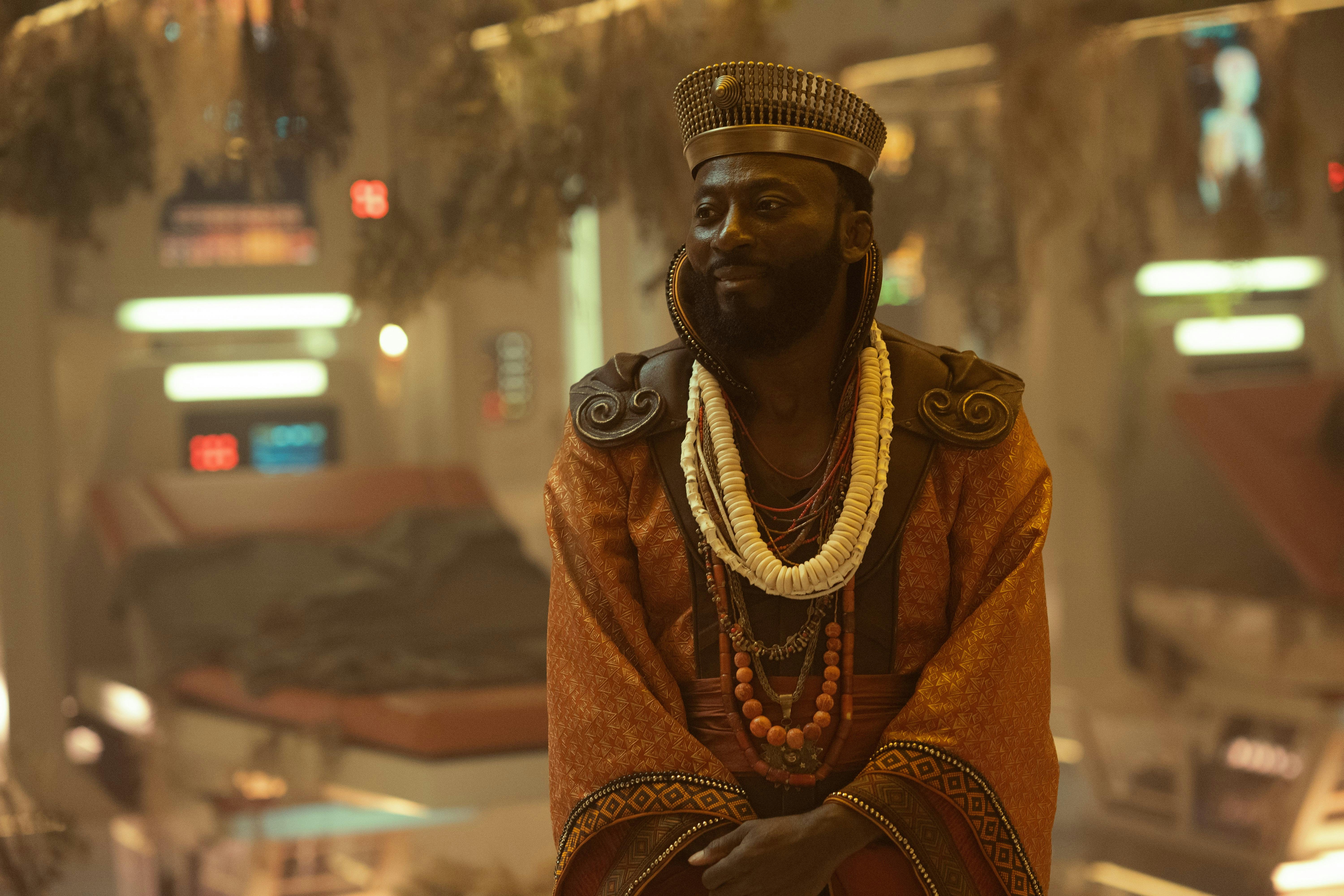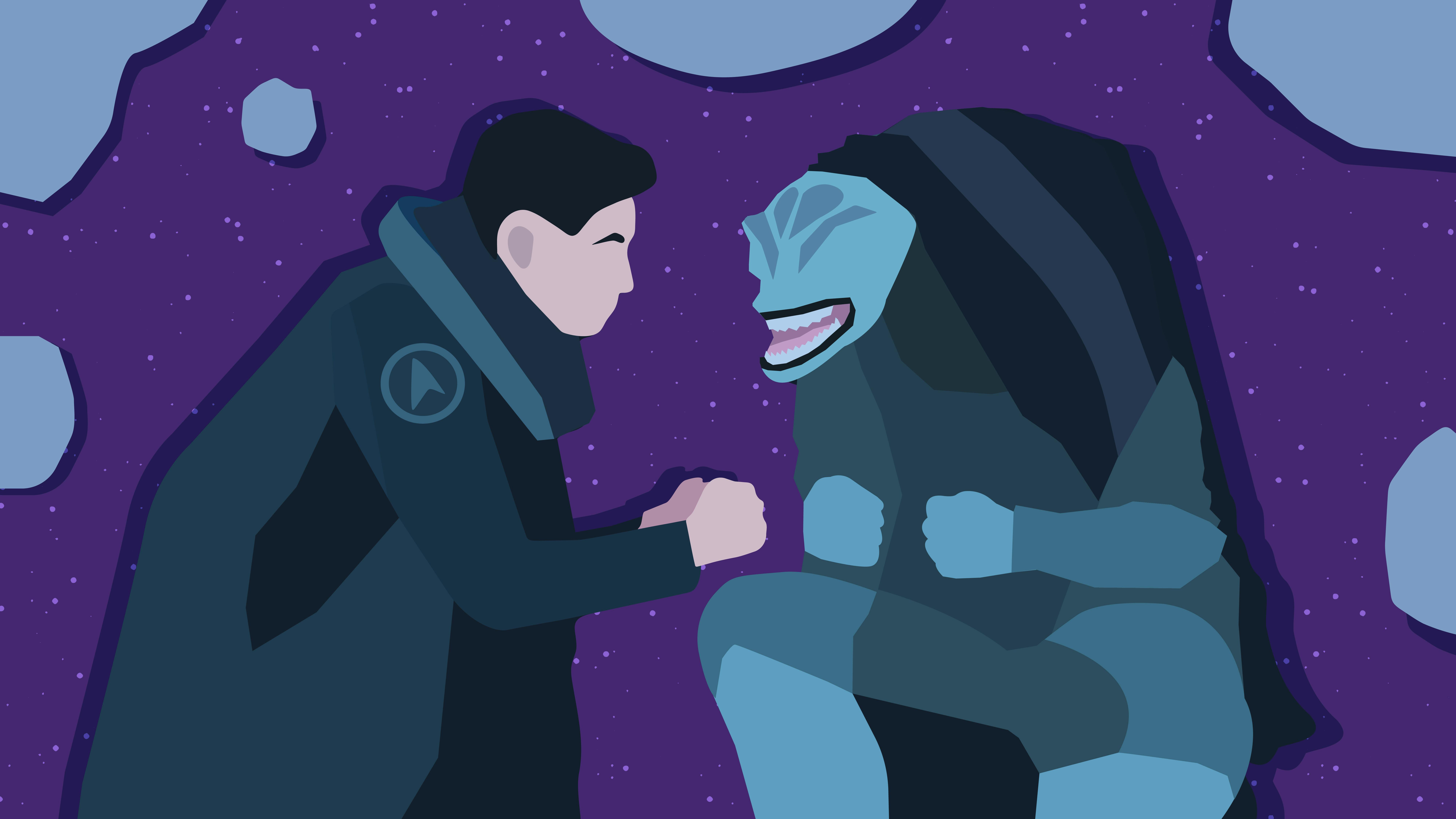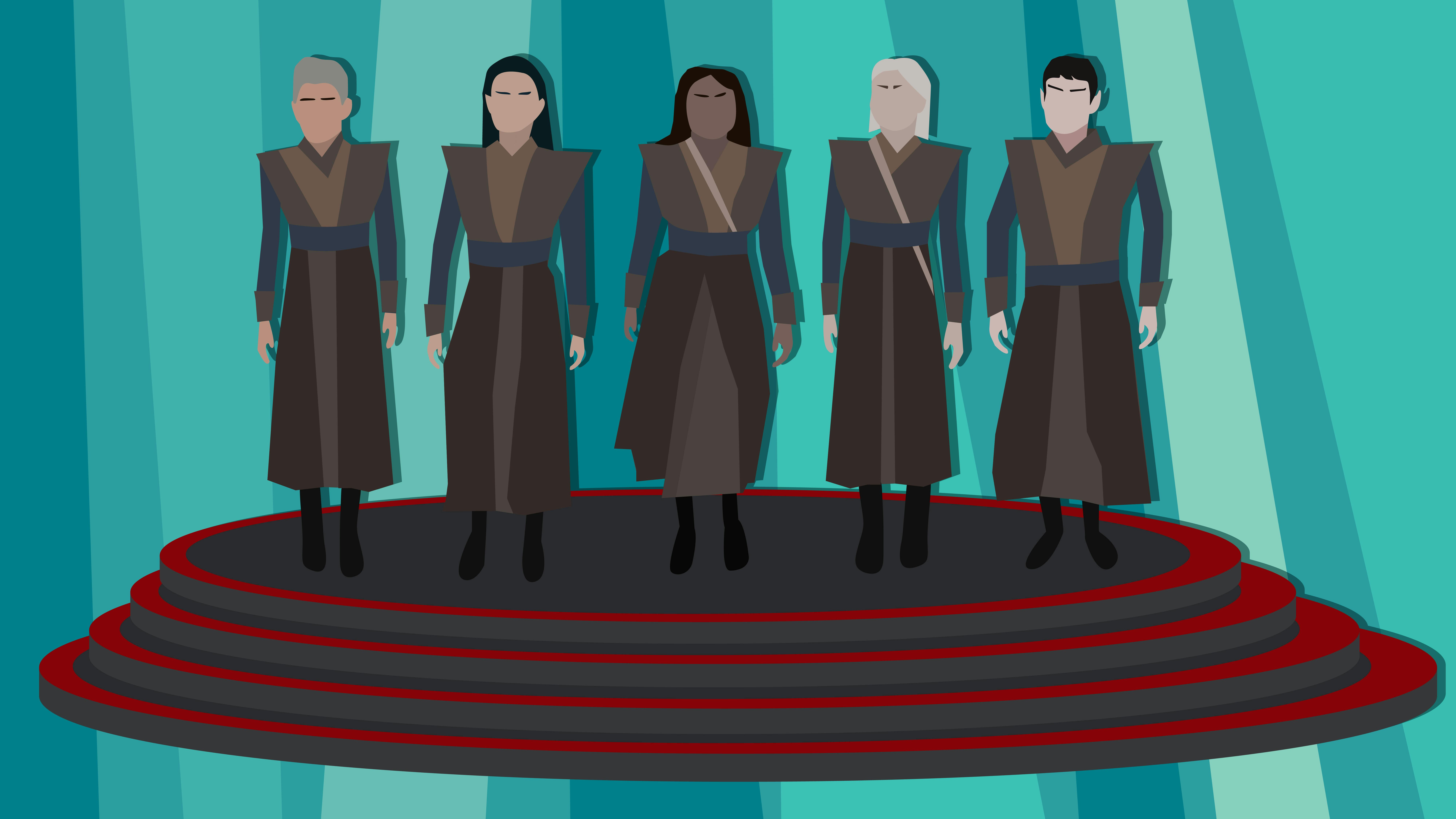Published Jun 28, 2022
Strange New Worlds 101: Benny Russell
"You are the dreamer, and the dream."

StarTrek.com
Welcome back to Strange New Worlds 101! This week, we’re looking at an Easter egg that, while only a small part of the episode, has a powerful connection to legacy series Star Trek: Deep Space Nine. The author of the book The Kingdom of Elysian that Dr. M’Benga reads to his daughter Rukiya is none other than Benny Russell, the writer whose life Sisko lives in the seminal Star Trek episode “Far Beyond the Stars.” To describe “Far Beyond the Stars” is to describe one of Star Trek’s best episodes. Worn down by the Dominion War and the continuing loss of his friends and colleagues, Sisko considers resigning his command of Deep Space Nine. However, before he can make any decision, he experiences a vision, sent by the Bajoran prophets who had named him their emissary. Sisko becomes Benny Russell, a sci-fi writer from 1950s New York City. Russell works for a magazine churning out stories, while enduring the microaggressions from his publisher and the active racism present in the city. There, Benny writes a story based on an image of a space station. The story is called Deep Space Nine, and the protagonist? One Benjamin Sisko. His stories are about a Black captain in the far-off future who is in charge of a crew and a space station. While everyone agrees the stories are brilliant, the publisher refuses to publish them as they stand — because no one will believe that a Black man can be captain of a space station.
Star Trek History: Far Beyond the Stars
As the weight of the oppression faced by Benny grows heavier, actor Avery Brooks delivers one of the most powerful performances in Star Trek as Benny expresses his fury at being silenced with a stirring and emotional speech:
“I am a human being, dammit! You can deny me all you want, but you can't deny Ben Sisko – He exists! That future, that space station, all those people – they exist in here! In my mind. I created it. And every one of you knew it, you read it. It's here. Do you hear what I'm telling you? You can pulp a story, but you cannot destroy an idea. Don't you understand; that's ancient knowledge, you cannot destroy an idea. That future – I created it, and it's real! Don't you understand? It is real. I created it. And it's real!”
As Benny Russell is taken to the hospital following his collapse, a street preacher, who bears a resemblance to Sisko’s father, appears at his bedside and tells him he can rest. “You are the dreamer, and the dream,” the preacher says, and Benny lifts his head to see that the world outside has been turned into stars. And with that, Benjamin Sisko wakes up. Back on Deep Space Nine, Sisko reflects on what he has seen and what it meant to him, uttering another powerful line," For all we know, at this very moment, somewhere far beyond all those distant stars, Benny Russell is dreaming of us.” As he says this, he sees himself as Benny reflected in the station’s window. We briefly see Benny again in the episode “Shadows and Symbols,” when Sisko briefly believes he is Benny once more. At the time, Benny is in an asylum writing his stories on the walls. This turns out to be a vision from the evil Pah-wraiths to try and lure Sisko off his course. The writers of Deep Space Nine toyed with the idea of the last scene of the show being Benny Russell with a script for the series on the Paramount Lot, but that idea was ultimately scrapped as it would call into question the entire Star Trek universe.

StarTrek.com
Dr. M’Benga’s book by Benny Russell points to a hopeful conclusion to Benny’s story. We know he had at least one story published on his own, and it remained popular far into the future. While we do not know the characters in the book themselves, M’Benga taking on the role of King Ridley implies that Benny was able to write a story with a Black lead in power, and that he was able to envision a better world that was not shut down by publishers and violence alike. “You are the dreamer, and the dream” is a line that has echoed throughout Star Trek since it was first said. Star Trek itself embodies that line — it presents a utopian future where differences are not a cause of discord, and good triumphs through the steady work of those who make a choice to do the right thing. It also embodies the dreamer — the writers, directors, and actors take it upon themselves to envision this better future. Benny Russell, in his brief appearance, embodied the power of fiction. This episode too demonstrates the power of words and what they can create.




